Spike Lee reunites with John David Washington - yes, the son of Denzel Washington - having first worked together with the younger Washington on Malcolm X when he was six years old and his dad was the lead, Malcolm X.
The two bring this year's Get Out, which is far more didactic and sobering than Jordan Peele’s, but still has its laughs in between… let's dig in.
Spike Lee and his 40 Acres And A Mule (his production company named after what the US state gave to free slaves after the abolition of slavery), has never shied away from topical issues to do with race and the black experience in the US. He teams up with Jordan Peele, the man who won the Oscar for writing about the same thing.
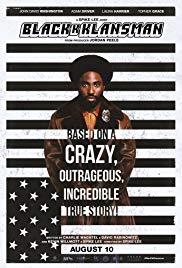
From She’s Gotta Have It to Do the Right Thing to his commercial films like The Inside Man, Spike always has something to say about his country and race relations.
So it’s fitting in the years of Agent Orange, with the rise of right wing parties and even the re-emergence of ultra right protests, that Spike should come at us with a movie with such a bizarre premise that, of course, it had to be true.
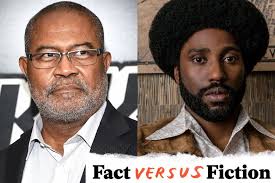
BlacKkKlansman tells the true story of the first black detective of Colorado Springs, who infiltrates the Ku Klux Klan and gets a white detective to pass as him off in real life whilst he ingrates himself into the organisation via the phone.
Of course, this is Hollywood, so some aspects will be blemished to either add excitement, streamline the story or to strengthen themes. One of the blemishes is that the story has moved from 1979 to 1972. This is done for thematic reasons.
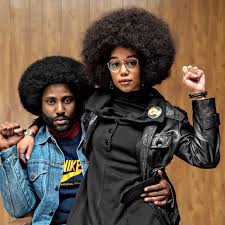
It lets the film be set during the time of Nixon, who was supported by the KKK (like one Agent Orange today) and stylistically it helps Spike reference Blaxploitation cinema during its heyday. This is referenced in the look and soundtrack of the movie.
Spike Lee seems to relish shooting in the more natural environment that Colorado gives him… it’s a big change to his city and inner city landscapes. The other big change is the humour.
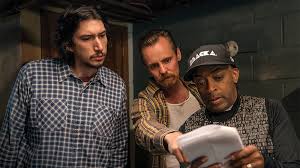
Spike has always had a sense of humour, but with BlacKkKlansman he centres the movie as a subversive buddy-cop action comedy with a bite, with Adam Driver and John David Washington as the reluctant partners who butt heads and are each dealing with their own issues on race and ethnicity.
Washington plays Ron as a naïve rookie who believes in the American dream and throughout the film his consciousness to his own black skin and the role of the police is awakened, whilst Adam Driver’s Flip is on the other hand of the spectrum as the white man who is forced to confront his Jewish heritage whilst he just wants to pass for white.
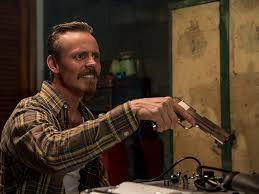
The anatagonists are funny and depressing at the same times. Jasper Pääkkönen (from Vikings) is menacing as the trigger happy white supremacist.
Paul Walter Hause’s Ivanhoe could fit well in the Hangover trilogy - that’s how terribly funny he is - and then there’s a mini career-turning performance from Topher Grace.
Grace plays the real life Derek Duke, who's still spewing his hate today - Grace gives Duke some semblance of humanity and plays him for laughs without making the character a caricature.
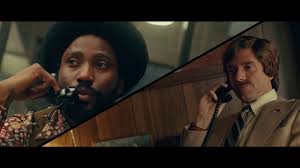
The film is packed with interesting characters outside from the lead and the villains, including the fictional Laura Harrier’s character Patrice Dumas, who's akin to Angela Davis meets Pam Grier.
In the times of Adam Catzavelos, Donald Trump and Vicki Momberg, BlacKkKlansman came at the right time.
It felt like: Get Out had a baby with Dear White People during the 70s.
Rating
****
index
* rubbish ** ja nee ***its aight ****now we cooking with gas *****it’s a Classic ,man